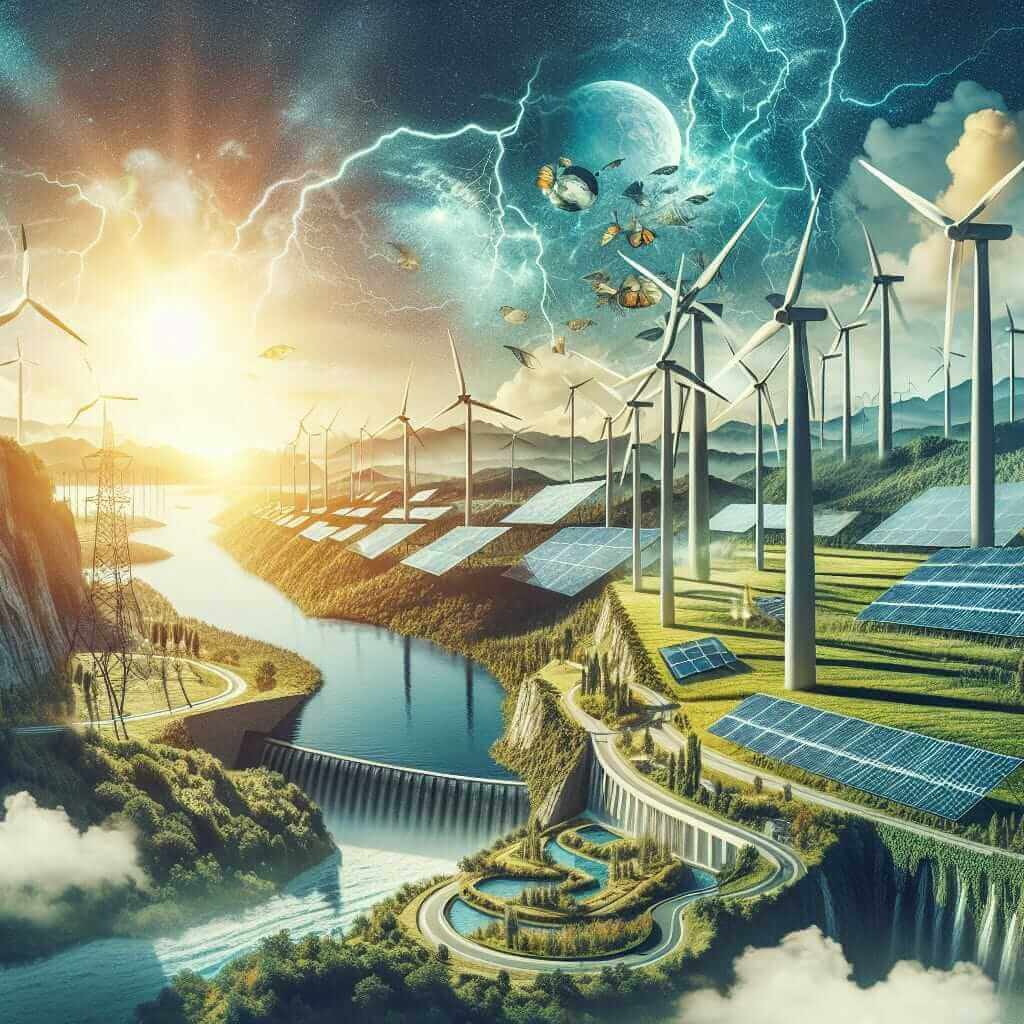“The role of renewable energy in economic recovery” is a hot topic in the IELTS world right now, with the global energy crisis and climate change becoming increasingly urgent issues. Examiners want to see you can discuss complex global challenges like this with nuanced arguments and sophisticated vocabulary.
This essay will delve into this timely topic, providing a sample answer to a common IELTS Writing Task 2 question format and offering valuable insights into crafting a high-scoring essay.
Sample IELTS Essay Question
Discuss both views and give your opinion.
Some people believe that investing in renewable energy sources is crucial for economic recovery. Others argue that focusing on traditional energy sources is more important for economic stability.
Analysis of the Question
This question presents a classic “Discuss both views and give your opinion” structure. It requires you to present a balanced analysis of both sides of the argument before clearly stating and justifying your own viewpoint.
Keywords to note:
- Renewable energy sources: Solar, wind, hydro, geothermal, biomass.
- Economic recovery: Rebuilding and growing the economy after a downturn.
- Traditional energy sources: Fossil fuels (coal, oil, natural gas).
- Economic stability: Maintaining a predictable and reliable economy.
Sample Essay

It is widely acknowledged that the global economy faces significant challenges, and the debate surrounding the best path to economic recovery is fiercely contested. While some advocate for continued reliance on traditional energy sources, I firmly believe that investing in renewable energy is not only essential for environmental sustainability but also holds the key to long-term economic prosperity.
Proponents of traditional energy sources often highlight their reliability and cost-effectiveness. Fossil fuels have powered industries for centuries, and their established infrastructure ensures a steady and predictable energy supply. Moreover, these sources often come with lower upfront costs, making them attractive to governments facing budget constraints. However, this argument overlooks the long-term economic risks associated with fossil fuels. Their finite nature exposes economies to volatile price fluctuations and geopolitical instability. Additionally, the detrimental environmental impacts, such as air pollution and climate change, lead to healthcare costs and economic damage, far outweighing any short-term gains.
In contrast, investing in renewable energy sources, such as solar, wind, and hydro power, offers a multitude of economic benefits. Firstly, it stimulates job creation. The development, manufacturing, installation, and maintenance of renewable energy infrastructure require a skilled workforce, creating employment opportunities across various sectors. Secondly, it reduces dependence on energy imports, enhancing energy security and boosting domestic industries. Furthermore, renewable energy sources are inherently sustainable, mitigating the long-term economic risks associated with climate change and resource depletion.
In conclusion, while traditional energy sources may appear economically viable in the short term, their inherent limitations and long-term risks cannot be ignored. The transition to a renewable energy-based economy is not only necessary for environmental preservation but also presents a unique opportunity to foster innovation, create jobs, and secure a more sustainable and prosperous future for all. (Word count: 288 words)
Tips and Vocabulary
- Structure: Follow a clear structure (Introduction, Body Paragraph 1, Body Paragraph 2, Conclusion) to present your arguments logically.
- Topic Sentences: Begin each body paragraph with a clear topic sentence that outlines the main idea.
- Linking Words: Use a variety of linking words (However, Moreover, In contrast, Furthermore) to connect ideas and create flow.
- Vocabulary: Demonstrate a wide range of vocabulary related to energy, economics, and the environment.
Useful Vocabulary
- Fossil fuels (n.) /ˈfɒsɪl fjuːəlz/ : Fuels formed from the remains of ancient organisms, such as coal, oil, and natural gas.
- Renewable energy (n.) /rɪˈnjuːəbl ˈɛnədʒi/ : Energy from sources that are naturally replenished, such as solar, wind, hydro, and geothermal power.
- Economic recovery (n.) /ˌiːkəˈnɒmɪk rɪˈkʌvri/ : The phase of the business cycle following a recession, characterized by increasing economic activity.
- Sustainability (n.) /səˌsteɪnəˈbɪləti/: The ability to meet the needs of the present without compromising the ability of future generations to meet their own needs.
- Infrastructure (n.) /ˈɪnfrəˌstrʌktʃər/: The basic physical and organizational structures and facilities (e.g., buildings, roads, power supplies) needed for the operation of a society or enterprise.
- Geopolitical (adj.) /ˌdʒiːoʊpəˈlɪtɪkl/: Relating to the influence of geographical factors on political relations between countries.
- Volatile (adj.) /ˈvɒlətaɪl/: Liable to change rapidly and unpredictably, especially for the worse.
- Mitigate (v.) /ˈmɪtɪɡeɪt/ : Make (something bad) less severe, serious, or painful.
- Depletion (n.) /dɪˈpliːʃən/: Reduction in the number or quantity of something.
- Prosperity (n.) /prɒsˈpɛrɪti/: The state of being successful and having a good standard of living.
Conclusion
Mastering the art of writing a compelling IELTS essay on topics like “The role of renewable energy in economic recovery” requires a combination of strong vocabulary, well-structured arguments, and a deep understanding of the issues at hand. Continue to practice with other related topics such as the impact of climate change on the economy, government investment in green technologies, and the future of the global energy landscape.